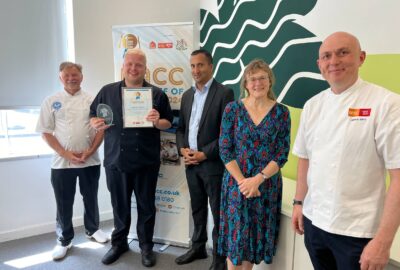Providing employment and support to a person with visible or hidden disabilities is often easier and more rewarding than businesses might think, says Peter Ducker, chief executive of the Institute of Hospitality
More than seven and a half million people of working age in the UK are disabled or have a health condition. Historically there has been a significant gap between the proportion of disabled people employed compared with non-disabled people.
Research has shown that only 7% of young people with a disability move into employment after finishing formal education. This is a huge waste of talent and leaves them with no prospects and a life on benefits. Therefore encouraging applications from disabled people is good for business, says the UK Government (and it is no secret that the UK hospitality sector has plenty of vacancies).
It can help businesses to:
- increase the number of high quality applicants available
- create a workforce that reflects the diverse range of customers it serves and the community in which it is based
- bring additional skills to the business, such as the ability to use British Sign Language (BSL), which could result in large savings
The benefits of retaining an experienced, skilled employee who has an impairment are usually greater than recruiting and training new staff. It is also good for the individuals. Sam Goss FIH is the general manager of Moor Hall Hotel & Spa in Sutton Coldfield. He has recently taken on a new member of staff with special needs and says that the experience has been a very positive one. At a business networking group, Sam met Julie Pallister, the placement coordinator for The Hive College, Birmingham, a specialist vocational college for students aged 19 to 25 with either physical or learning special needs. Conditions range from cerebral palsy, hearing impairments, to learning difficulties and autism.
Sam says: “We started with Sakandar Hussein, a lovely guy who is interested in food and catering. We met with him, our head chef and two people from the college and he started on a one-day a week placement just learning the basic skills in the kitchen. He has now moved onto a supported internship with is three days a week with a support tutor from the college, so he’s very much part of our team. Hopefully that will progress to fulltime work.”
Sam explains that the fundamental reason for working with The Hive College is to fill vacancies: “We all know there are challenges and difficulties recruiting chefs in the UK and so it’s a great initiative being able
to work with organisations like The Hive. Sakandar has minor special needs related to learning and autism. The college and his parents are very grateful to us for supporting him, but we are very grateful to have him here. He’s a great member of the team.”
The employer’s Access to Work guide (https://www.gov.uk/government/publications/access-towork-guide-for-employers) can help towards the costs of making reasonable adjustments. If you’re a business with 25 or fewer employees, you can get extra support through Jobcentre Plus to help you recruit and retain staff with a disability or health condition.
The Institute of Hospitality is the professional body for managers and aspiring managers working and studying in the hospitality, leisure and tourism industry. It has members working in every sector of the industry and in over 100 countries around the world. https://www.instituteofhospitality.


